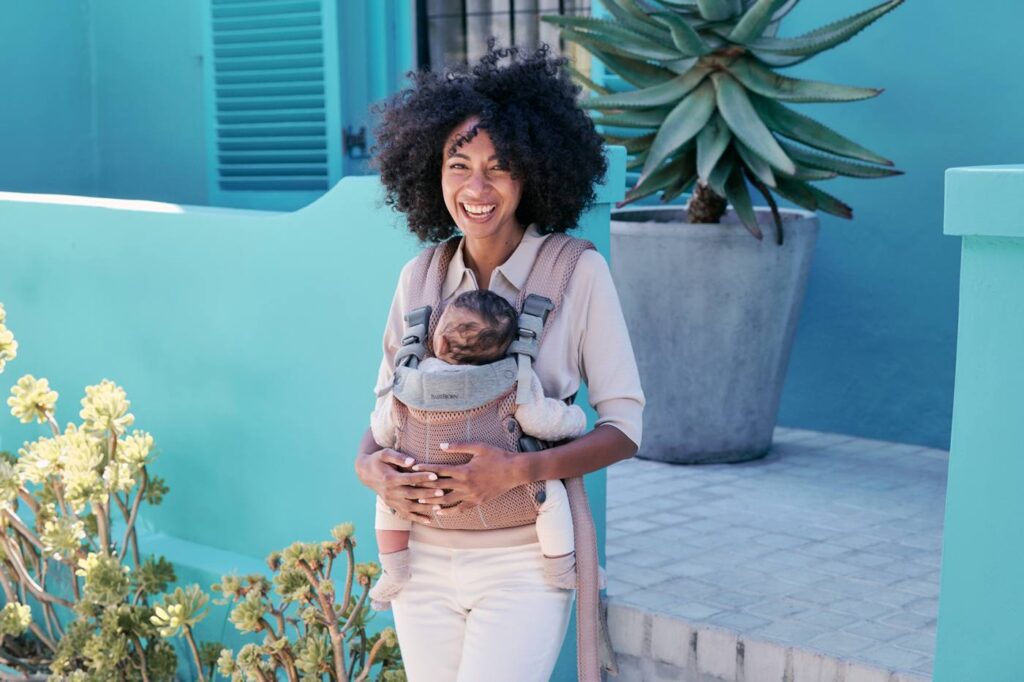The Swedish company has been in the business of designing top-notch products for babies and parents, worldwide, since 1961. The brand has become synonymous with products that simplify everyday life, nurture closeness, and help families with young children enjoy each precious moment — these are the pillars of the company’s mission, and fuel its passion for baby- and parent-friendly products.
BabyBjörn has been a family-owned-and-operated business, from the start. Today, a new generation is at the helm, but the steadfast commitment to putting the specific needs of babies and their parents first remains the same.
Over the years, as the company expanded its global presence and thrived in the Japanese market, Bridges delved into insightful discussions with Makoto Fukai, General Manager of BabyBjörn Japan, and Annika Sander Löfmark, Global Head of Communications. The dialogue explored not only the brand’s Japanese market dynamics and design philosophy but also delved into the rich historical backdrop of BabyBjörn as a cherished family-owned enterprise.
BabyBjörn products are comfortable and practical, for mothers and fathers, alike, thanks to the ergonomic design of our products.
Makoto Fukai, General Manager of BabyBjörn Japan
BabyBjörn has maintained its status as a family-owned company for many years. Can you discuss the advantages of remaining a family-owned global company in the competitive baby products industry?
Löfmark: BabyBjörn is a family-run company and one of the few left in an industry of this size. Our products are available in more than 50 countries. The vision to simplify life for families is as strong today as it was 60 years ago. The company was, in the beginning, run by a family with small children. Today, the second generation family members have ownership of the company, and are highly-involved as its board members. Part of the third generation has also been introduced to the daily work. This dedicated and engaged ownership, with strong values, guarantees a sustainable business, in the long term. This is the foundation and the origin of everything we do. The ability to develop products that foster closeness and support for families all over the world demands a strong commitment; one that a family-owned-and-operated company can fulfill, because of the long-lasting engagement.
Swedish design is often associated with safety, functionality, and a clean, minimalist aesthetic. How does BabyBjörn incorporate Swedish design principles into the development of safe and well-designed baby products for parents worldwide? Can you provide examples of how these design principles translate into your product offerings?
Löfmark: Swedish values shape the BabyBjörn design in many ways; from safety philosophy and minimalist design to an approach on equal parenting. Safety is top priority throughout the entire design process, since the products are made for the most precious beings in the world. Our heritage is part of the future: innovative solutions and Swedish style are always present in our designs. The light, colors, and textures of Nordic nature are a big source of inspiration. Pairing simplicity with functionality makes the BabyBjörn design expression simple, clean, and timeless. Minimizing the environmental impact is fundamental, as well, and BabyBjörn products are long-lasting and can be used by many babies and families, for generations to come.
Our BabyBjörn baby carriers have been developed together with medical experts and numerous test families. We carry out rigorous development and testing, to ensure that the carriers are safe and secure for babies, as well as practical and functional for all types of parents, all over the world. The core design style of the baby carriers is modern yet classic, to suit mothers and fathers, alike. The BabyBjörn bouncers are soothing and stimulate the baby’s development through natural rocking, no batteries needed. All materials are soft against the baby’s skin, and at the same time, durable and easy to wash.


BabyBjörn has successfully expanded into global markets, with Japan being one of the top three markets. Could you share the story of the company’s expansion into Japan and highlight the tipping point that played a significant role in establishing a strong presence in the Japanese market? What strategies were pivotal in this process?
Fukai: BabyBjörn has had two tipping points in Japan, and the first was the bib. When it was introduced to the Japanese market in the early 90’s, it was a very innovative product, as it is made of soft plastic it can easily be rinsed after use and does not need washing as traditional bibs The existing bibs that were available in Japan were only to protect against dribbling. The BabyBjörn Bib also protects against all food droppings, which addresses a daily challenge for many families. Because it was a new concept at the time it was given a new name —スタイsutai, in Japanese — because bib for Japanese consumers means something made out of textile. The strongest sales channels back then were the mail-order magazines. They introduced the bib as an overseas trend item, in a nice Scandinavian design. BabyBjörn Bib was a success; and soon, it sold in the hundreds of thousands. It has, since then, continued to be a favorite among Japanese parents.
When it comes to high-quality baby products and accessories that are made with function, form, and first-rate safety features in mind, BabyBjörn sets the standard.
The second tipping point was the baby bouncer. The mail-order magazines introduced the BabyBjörn bouncer as a Scandinavian lifestyle item. Of course, the design of the bouncer was very appealing, and it was also suitable for the Japanese lifestyle, as Japanese families spend much time on the floor, doing activities like eating their meals at a low table, while sitting on the floor. As such, it was easy for Japanese families to accept the baby bouncer as a way of caring for their babies, not only for its design, but also for the way it integrated into their lifestyle and culture. This big hit helped us expand our sales channels, as most of all middle and upper segment chain store retailers contacted us, wanting to be a BabyBjörn partner. Our BabyBjörn bouncer remains the number one brand in terms of sales, in the Japanese market today.


Japan is known for having unique consumer preferences and cultural nuances. What characteristics of Japanese consumers does BabyBjörn take into account when designing and marketing its products? How have you ensured that your products resonate with the Japanese market, and what have been some key insights from your experience in this market?
Fukai: The design and the feelings the brand evokes are the first aspects that inspire Japanese consumers; then, the satisfaction and the benefits that the products bring to their lives. BabyBjörn products are comfortable and practical, for mothers and fathers, alike, thanks to the ergonomic design of our products. Our baby carriers are a good example of this. In Japan, the cultural tradition was for the mother to carry her baby strapped on her back, while she worked outside on the farm or inside the house. BabyBjörn introduced front-carrying baby carriers, together with a message about bonding and attachment between the parents and the baby, and this had an impact on the lifestyles of Japanese parents. It also integrated well with the way of life, in the city; most people today live in the city and do not need to carry their baby strapped on their backs, to be free to work. The Japanese market accepted front-carrying as a new caring style; it has been a natural transition.’








